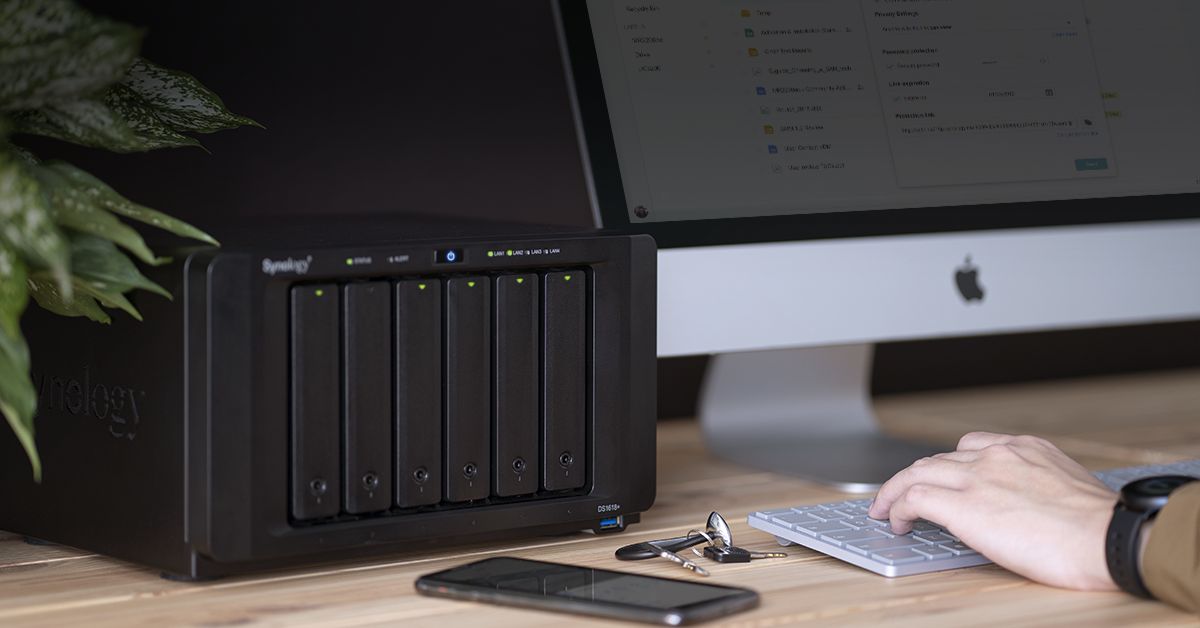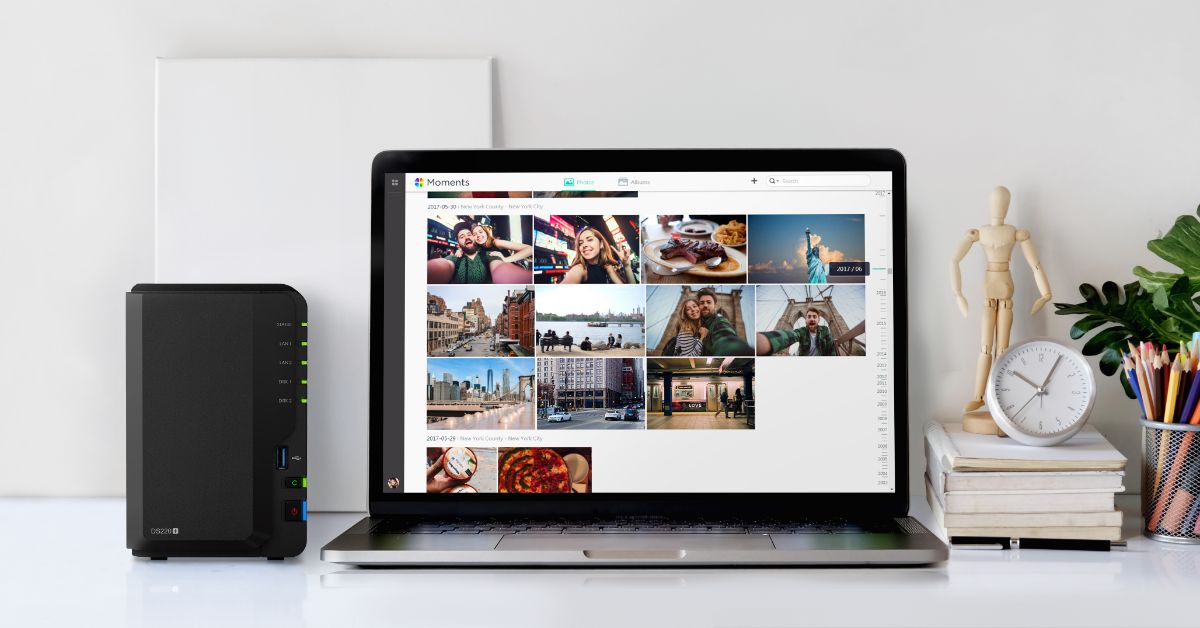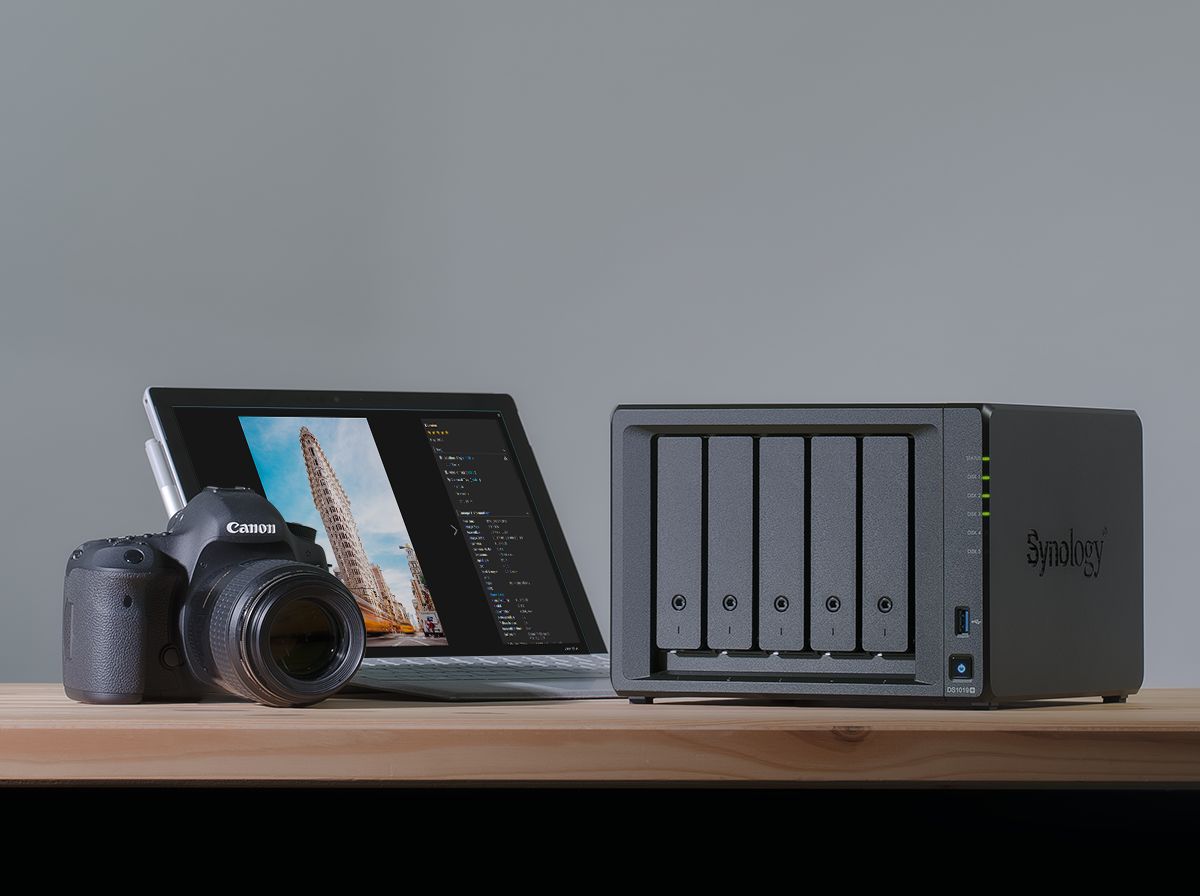These days, one of the more common workarounds is to use or subscribe to a cloud service. Love it or leave it, there is no denying that the medium has, in one form or another, become an integral part of our lives. Even more so now than ever, in light of the ongoing pandemic and the ever-increasing “work from home” habit. But the monthly subscription fee might become another problem. If you’re not keen on paying a monthly or even an annual subscription to a service provider, there is always the option of purchasing and keeping your own personal cloud. On that note, should you ever be so inclined to procure your very own cloud storage device, you don’t have to look any further than a NAS. More specifically, a NAS straight from Synology.
What’s A NAS And How Does It Work?
At this point, some of you are probably still asking: what’s a NAS and how does it work? An abbreviation of Network-attached Storage, a NAS is basically a storage solution that caters for individuals or groups with a desire for full control or personalisation over the data that they own. Moreover, these data storage devices can connect directly to a network, making access to any data stored on it conveniently accessible.
Why Synology?
When it comes to NAS products and technology, very few brands have the specialisation and technical know-how of storage solutions like Synology. The brand has more than two decades of experience under its belt and is renowned for its NAS appliances, along with their corresponding software that is constantly growing with a wide variety of applications.
Sky’s The (Storage) Limit
One major benefit of a NAS is that your storage capacity is scalable. With scalable storage space, you can amass your and your family’s data into a single, unified space. Thus, eliminating that age-old hassle of trying to locate that one file that you saved so very long ago, in one of the numerous storage devices you’ve accumulated over the years. A NAS also supports multiple storage bays, giving you the option of expanding the size of your personal storage. Taking a deep look into Synology’s more recent DiskStation NAS like the DS720+ or a DS920+, each NAS provides a high scalability feature to expand your storage capacity to seven bays and nine bays, respectively. Got a need to expand that capacity beyond that? Not a problem, especially with Synology’s DX517 expansion unit. On top of that, both models are powered by a 4-core Intel CPU that turbos up to 2.7GHz, thus further accelerating data transfers and streaming directly from the NAS. Further, both NAS models also come with two built-in M.2 2280 NVMe SSD slots that optimise Cache Acceleration.
Your Own Personal Multimedia Centre
But there’s more than just storing and backing up your data with NAS, as Synology offers solutions that most people nowadays need: a multimedia hub. It enables you to stream your favourite movies or TV shows from. It’s a convenient feature, especially if you’re into personally curating your own media library with specific titles and shows that are unavailable on 3rd party streaming services like Netflix or HBO. On top of that, Synology’s DSM provides support for streaming apps like Plex, in the event that you wish to use a slightly different interface.
Your Storage, Your Rules
Because a NAS is usually connected to a personal network, owners of both products are able to set the rules with what goes in and out of the storage device. Let’s make this clear: we are talking about complete ownership of the data that flows through a NAS, which also means that data security fears that usually plague third-party cloud service providers are greatly reduced. Needless to say, Synology isn’t going to leave you hanging at the door with just the physical products. It should come as no surprise that the brand also offers a great deal of software solution, from its easy-to-use DiskStation Manager (DSM) OS, to its own Synology Drive server, as well as its AI-powered Moments interface that lets you upload all your photos at their original size and even intelligently organise them. Based on pre-determined or custom folders. Your choice, really.
Hidden Costs? Not With A NAS
We know what you’re thinking: Yes, a NAS isn’t cheap by any measure of the word, and owning one can most certainly put a dent in your wallet. However, consider this: the cost of purchasing a NAS and populating all its available bays is usually a one-off affair. Sans any unexpected costs (i.e storage degradation, drive failure, etc.), naturally. With a NAS, there is no monthly subscription fee nor are there any hidden fees that will inevitably slap you in the face. On top of that, NAS maintenance is considerably easier, usually requiring the user to deal with a single vendor. On top of that, there’s usually a pretty long warranty that accompanies each and every NAS, meaning that you won’t have to fork out a single red cent whenever a repair is needed. So, if this article has tickled your fancy for a Synology NAS and you’re thinking about getting one for yourself, you’re in luck. As it so happens to be the case, Synology is giving you a chance to win one unit of its DS220j, which is a perfect NAS for beginners and individuals wanting to build their very first off-site storage. All you have to do is complete this survey and presto! You’re in line towards winning a brand new NAS. Do note that the survey period will conclude on 31 May, so if you don’t want to miss out, hurry up and fill in the form! This article is sponsored by Synology.




